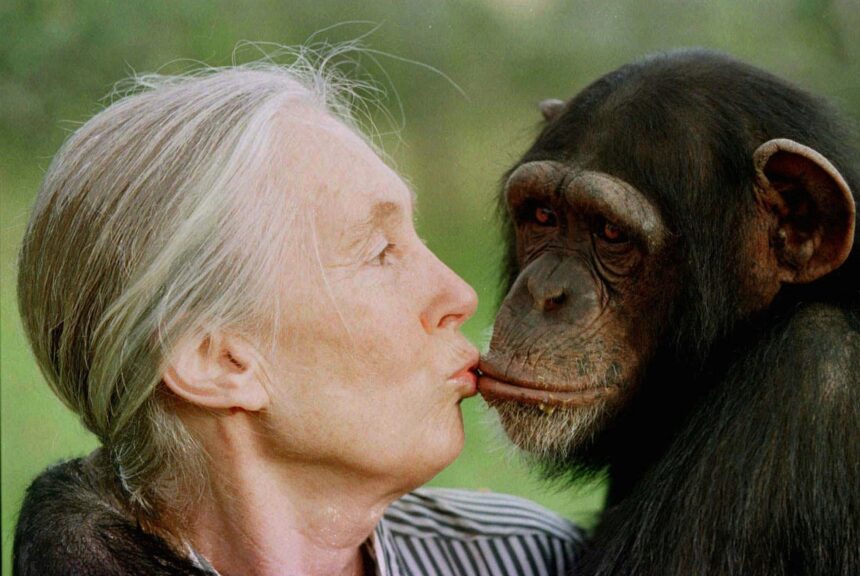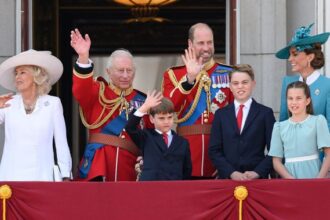The world has lost a beacon of hope for wildlife conservation as Dr. Jane Goodall, the pioneering primatologist whose groundbreaking work with chimpanzees redefined our understanding of animal intelligence and emotions, has died peacefully at her family home in England. She was 91.
Her death was announced early Wednesday by the Jane Goodall Institute, which she founded in 1977. “With profound sadness, we share that our founder, Dr. Jane Goodall, has passed away,” the statement read. “Her revolutionary discoveries and unwavering voice for the natural world transformed how we understand our place on this planet.”
Goodall’s journey from a young woman with no formal scientific training to one of the world’s most respected conservationists began in 1960 when, at just 26 years old, she ventured into Tanzania’s Gombe Stream National Park. Her patient observations of chimpanzees in their natural habitat led to the revolutionary discovery that these primates make and use tools – a finding that challenged the prevailing definition of human uniqueness and forced science to reconsider the relationship between humans and animals.
“What we found in Gombe wasn’t just about chimpanzees,” Goodall told me during our last interview in 2023 for CO24 World News. “It was about redefining what it means to be human. The line between us and them became wonderfully blurred.”
Her meticulous field notes, naming chimpanzees rather than numbering them, and describing their distinct personalities, emotions, and family bonds, initially drew criticism from the scientific establishment but eventually transformed ethology and wildlife research methodologies globally.
By the 1980s, Goodall had shifted her focus from research to activism, traveling more than 300 days per year well into her 80s to advocate for environmental conservation. Her “Roots & Shoots” program, now active in over 100 countries, empowers young people to implement practical solutions to ecological and humanitarian challenges in their communities.
Canadian Prime Minister reflected on Goodall’s special connection to Canada during a press conference covered by CO24 Canada News. “Dr. Goodall visited our country dozens of times, inspiring generations of Canadian conservationists and scientists. Her legacy lives on in our national commitment to biodiversity protection.”
Throughout her career, Goodall received numerous honors, including Dame Commander of the British Empire, the UNESCO Gold Medal, and the prestigious Templeton Prize. She authored more than 30 books, including her seminal work “In the Shadow of Man,” and was the subject of multiple documentaries that brought her work to mainstream audiences.
Environmental economists estimate that Goodall’s advocacy directly influenced over $2.8 billion in conservation funding worldwide, according to a 2024 analysis published in Nature Sustainability and reported by CO24 Business.
Dr. Richard Wrangham, primatologist and professor at Harvard University, described Goodall as “the single most influential conservationist of the past century,” noting that “her ability to communicate complex scientific concepts with compassion and clarity changed how the public values wildlife.”
Despite facing personal hardships, including the death of her second husband in 1980 and a diagnosis of peripheral neuropathy in her later years that made walking difficult, Goodall maintained a rigorous schedule of public appearances, leveraging her platform to highlight urgent environmental concerns from deforestation to climate change.
In our final conversation, Goodall expressed characteristic optimism: “I’ve seen too many miracles not to have hope. Young people today understand what’s at stake in ways previous generations couldn’t. They are my greatest source of hope.”
As the world mourns the loss of this remarkable scientist and humanitarian, we’re left to wonder: Who among us will carry forward Goodall’s unique blend of scientific rigor, compassionate activism, and unwavering optimism for our planet’s future?










